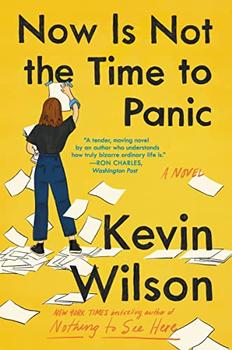Summary | Excerpt | Reading Guide | Reviews | Beyond the book | Read-Alikes | Genres & Themes | Author Bio

The Falconer is an instant female coming-of-age classic replete with 1990s nostalgia; equal parts cinematic and contemplative, cynical and doggedly hopeful. Dana Czapnik's protagonist will undoubtedly draw comparisons to Holden Caulfield, the archetype of teenage misanthropy, but she is so much more than that — a completely original and exceptional creation.
17-year-old Lucy Adler is a star high school basketball player attending private school in New York City who is in unrequited love with her best friend Percy. She is proud of her skills on the court, but she is frustrated that Percy does not look at her the way he looks at other girls, those who Lucy perceives as prettier and more confident with their social skills. Lucy's older cousin Violet, a painter and outspoken feminist, attempts to provide an alternative perspective, as does Lucy's mother, but as things grow more complex with Percy, Lucy finds it increasingly difficult to determine what kind of woman she wants to be. Interspersed with the plot are Lucy's ruminations on NYC, class and consumerism, art, and the gradual loss of her childhood innocence.
It's a relatively simple plot, but the drama of seeking out an identity in adolescence is larger and more complex than it might seem. Czapnik uses symbolism with a deft hand to demonstrate Lucy's myriad ways of looking at something; a phenomenon that happens to all of us, but is particularly jarring at this time of life. Lucy wonders why she does not appear the same in pictures as she does in the mirror, a powerful reminder that we rarely show our true face to others. New York City is a perfect symbol for growing up — always changing, becoming something else, and full of grand events and tiny tragedies that seem equally significant.
Czapnik captures the counterculture of the 90s perfectly, from the decorations on Violet's fridge (Polaroid pictures, Dadaist reproductions), to her roommate's art projects (the "Barbie" logo painted with Pepto-Bismol). Towards the end of the novel, Violet and her roommate stage a demonstration to protest the new K-Mart opening in Astor Place, which they view as a defiling of Manhattan's artsy East Village and a symbol of corporate excess, and indeed they're right. This attitude seems quaint now that Starbucks is on every corner in Manhattan, including Astor Place (which is also now home to a Walgreens, Chase Bank, Staples, and the Facebook NYC corporate office, among others).
The book's title comes from a statue in Central Park of the same name, a rendering of a young boy standing on his toes to release a falcon into the air. Lucy's singular ambition is to be like this boy, suspended in beautiful animation, a representation of wild freedom. "Why can't girls with muscular legs in leggings stand on a hilltop and release a bird?" she asks. She is persistently aware of how and when she is treated differently from her male counterparts, and how she is patronized by adults. "I hate when adults try to teach me s—t about life," she declares, "Nobody knows anything about anything at all. The oldest, wisest person on the planet is as clueless as a newborn dog." (One can certainly imagine Holden Caulfield saying this.)
It is frankly shocking that this is Czapnik's debut novel; to get it this right on the first shot is a tremendous rarity. While the book is written for an adult audience, it has YA cross-appeal as it captures the teenage experience with raw emotional realism. Lucy is whip-smart (more clever than people presume girls her age to be), but not unrealistically so. She is insecure and she is stupid in the ways that girls her age can be (myopically boy crazy). She is a ruthless ball player. She is someone I want to know and someone I once was at the same time. Lucy learns a lot about what kind of woman she wants to be over the course of the novel, but she learns even more about what kind of person she wants to be, and it is an absolute pleasure to take this journey along with her.
![]() This review was originally published in The BookBrowse Review in February 2019, and has been updated for the
October 2019 edition.
Click here to go to this issue.
This review was originally published in The BookBrowse Review in February 2019, and has been updated for the
October 2019 edition.
Click here to go to this issue.

If you liked The Falconer, try these:

by Marie-Helene Bertino
Published 2025
A wise, tender novel about a woman who doesn't feel at home on Earth, by the acclaimed author of Parakeet.

by Kevin Wilson
Published 2023
An exuberant, bighearted novel about two teenage misfits who spectacularly collide one fateful summer, and the art they make that changes their lives forever.
Your guide toexceptional books
BookBrowse seeks out and recommends the best in contemporary fiction and nonfiction—books that not only engage and entertain but also deepen our understanding of ourselves and the world around us.